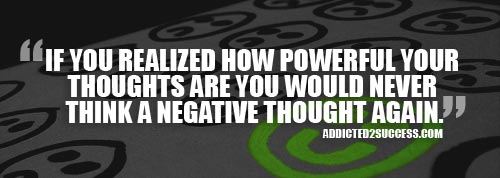“Successful people maintain a positive focus in life no matter what is going on around them.
They stay focused on their past successes rather than their past failures, and on the next action steps they need to take to get them closer to the fulfillment of their goals rather than all the other distractions that life presents to them.” – Jack Canfield
Your ability to focus in your reality is crucial to creating the life you really want. Your mental, emotional and spiritual health is absolutely essential to your physical health and well-being.
Having the ability to improve your mind, improve your brain, and to be able to easily and effortlessly improve your focus will bring about the positive results you want to achieve.
Let’s face it. Stagnating in your personal growth is not a good thing.
If your’re not consistently growing and expanding towards your goals, dreams, and desires you will feel like a balloon about to pop.
This is because the energetic ecosystem in your body is getting backed up and will eventually affect you health and well-being.
You will only achieve your body’s ideal healing power and optimal physical and cerebral strength when you are appropriately “nourishing” your nervous system and your spiritual and emotional self.
Stress related illnesses are on the rise because we are always on the go. It is absolutely necessary that you take time throughout the day to just be still.
With coffee, tea, soda, energy drinks, and the non-stop onslaught of stress permeating the atmosphere, it’s no wonder most people are one traffic jam away from a nervous breakdown.
Emotional health is built on taking time throughout the day and just being with yourself. Watching TV or web surfing doesn’t count because these things actually drain you.
Mindfulness Meditation is one great way to do this.
Mindfulness Meditation is simply a matter of stilling the mind by having it focus on an object or image or even a thought.
That’s really it. It’s not that complicated.
However, meditation is not about spacing out or leaving your physical body, that would be Astral Projection. Also, meditation is not about spacing out and having your awareness leave your physical body.
You have to remember to stay grounded in the present moment.
Let’s Focus Your Mind
We will use the 3D triangle image below.
Just look at and observe the subtleties of it. Look at the color, see the shape, follow the lines with your eyes. Do this for 5 minutes and you just focused your mind and meditated at the same time. Congratulations. 
Would you like another easy way to be able to focus your mind while at the same time totally eliminating worrisome and anxious thoughts?
Okay, here we go.
Turn off the TV, radio, cell phone, or anything else that might interrupt you.
Get yourself a candle and light it.
Sit down on the floor cross legged with your back against the wall. Place the candle about a foot in front of you and just focus on the flame and observe its movements.
If you like, place some soothing music in the background. Nothing heavy, just something light and relaxing.
Now while you are observing the flame, remember to breath.
Just do this for at least five minutes and see how you feel afterwards.
You should feel more relaxed, lighter and definitely more focused.
Brainwave technology is another great way to focus your mind and relax it at the same time.
I have been using the Brain Evolution System for almost 2 years now and it has helped me to stay calmer, feel more relaxed, and to also sleep better at night.
The progressive audio technology helps you to reach lasting, positive change in your life – simply by listening to a CD recording.
Every state of mind has a distinct electrical signature that can be detected in the brain.
These signatures are known as “brainwaves.” Using specialized equipment, these waves can be measured and recorded.
Using the exclusive 3-Point dynamic entrainment audio process, this program combines inaudible audio pulses with lavishly orchestrated natural sound environments.
As you listen to each disc, the subtle audio effects stimulate the brain to create brainwaves that match a variety of beneficial states of mind, like relaxation.
You get your complimentary copy of the Brain Evolution System Here.
Adding new processes in your life means removing other less important processes like watching TV or websurfing.
You’re worth it.
Take the time each day to nourish yourself with processes that actually benefit you and the greater good of mankind.
Benefits of improving your focus
- Improved concentration
- More relaxed and alert.
- Better sex life.
- Increased stamina and health.
- The ability to see tasks through to the end.
- Better memory.
- A positive mindset.
- Improved mind control.
- Relaxed breathing.
- Emotional stability.
- Easier to savor the pleasures in life.
- Worry less.
- Better self-esteem.
- Lower blood pressure.
- Improve sleep.
- Reduce gastrointestinal problems.
- Helps with depression, eating disorders, and chronic pain.











